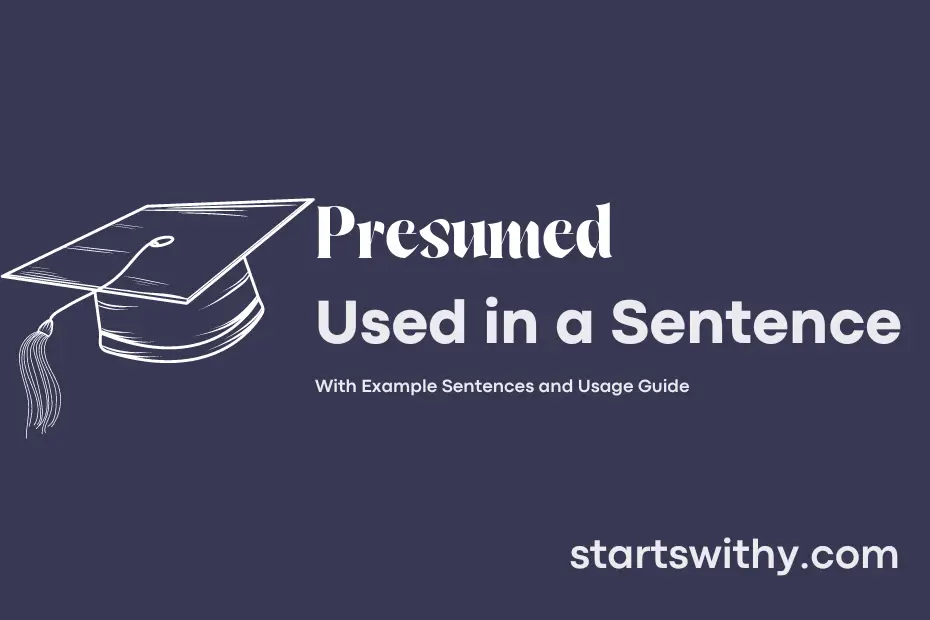Have you ever heard the term “presumed” and wondered what it means? Essentially, when something is presumed, it is taken as true or assumed to be the case without concrete proof.
In legal or everyday situations, the concept of presumed often comes into play to signify that a certain conclusion is made based on available evidence or probability without certainty.
7 Examples Of Presumed Used In a Sentence For Kids
- I presumed my friend was coming to play with me.
- The teacher presumed we all finished our homework.
- We presumed it would rain, so we brought our umbrellas.
- Mom presumed we wanted ice cream for dessert.
- The cat presumed it was time for dinner and meowed loudly.
- The football team presumed they would win the match.
- She presumed her brother had taken her toy.
14 Sentences with Presumed Examples
- Presumed everyone in the class had read the assigned textbook before the lecture.
- The professor presumed that all students would complete the assignment on time.
- She presumed that the exam would cover the topics discussed in the last few lectures.
- The students presumed that the campus library would have the required reference materials.
- The group presumed that the presentation deadline had been extended.
- He presumed that the college canteen would still be open for late-night snacks.
- The students presumed that the professor would be understanding about their late submission.
- She presumed that the college administration would provide assistance with internship placements.
- The class presumed that the upcoming project would be a group effort.
- He presumed that the exam questions would be based on the study guide provided.
- The students presumed that the college would be equipped with high-speed internet for online classes.
- The group presumed that the syllabus would be completed well before the exams.
- She presumed that the college club meetings would resume in person soon.
- The students presumed that the college festival would be a grand celebration.
How To Use Presumed in Sentences?
When using Presumed in a sentence, it is important to understand its meaning and how to incorporate it effectively. Presumed is typically used to indicate something that is believed to be true based on evidence or assumptions, even though it may not be confirmed.
Here are some tips on how to use Presumed in a sentence:
-
Presumed can be used as an adjective before a noun. For example: “The presumed suspect was taken into custody for further questioning.”
-
Presumed can also be used as a verb to show the action of assuming something to be true without definite proof. For instance: “She presumed that he would be at the meeting since he had attended all the previous ones.”
-
It is important to provide context when using Presumed in a sentence to clarify what is being assumed or believed to be true. This will help ensure that your message is clear and easily understood.
-
Remember to use Presumed when there is uncertainty or speculation involved. Avoid using it in situations where the information is confirmed or known to be true.
By following these guidelines, you can effectively use Presumed in a sentence to express beliefs or assumptions based on available evidence or reasoning.
Conclusion
In conclusion, the use of sentences with presumed allows for an expression of assumptions or beliefs without certainty. These sentences are commonly used in situations where there is a lack of definitive proof or when making educated guesses. By incorporating the word presumed into sentences, individuals can convey their interpretations or expectations without claiming absolute truth.
Whether in legal contexts, scientific reports, or everyday conversations, sentences with presumed offer a way to communicate possibilities or likelihoods without definitive evidence. Understanding the nuances of presumed in sentences helps in clarifying the degree of certainty or doubt associated with the information being conveyed, making it a valuable tool for effective communication in various settings.



